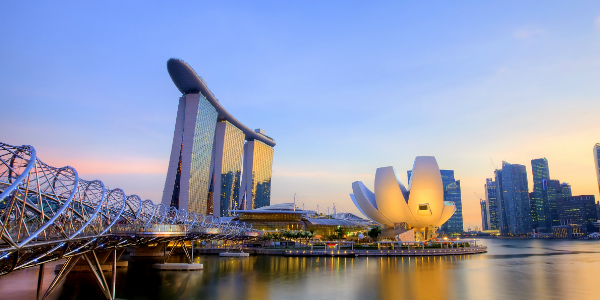New to Singapore? Here are some of the city’s healthcare facts and stats
There are a number of things to worry about when you move to a new country, and Singapore is no different. Moving logistics, housing, arranging a new school for the kids, getting started with a new job; there are so many personal details, both large and small, that must be looked after that when moving to a new country most barely have any time to look at the larger systems in place in their new home. Whether it be public utilities, local government, or (as this article will cover) the local healthcare system, information can be nebulous and hard to come by all in one spot. With this in mind, Pacific Prime Singapore presents this Singapore Healthcare Facts guide filled with quick statistics on many facets of country with regards to its healthcare system.
Singapore and its people
2015 Singapore facts:
|
Area |
719.1 sq km |
|
Population |
5.535,000 |
|
Residents |
3.902,700 |
|
Population over 65 |
11.8% |
|
Fertility rate per female |
1.24 |
Population % by ethnicity:
|
Chinese |
74.3% |
|
Malay |
13.3% |
|
Indian |
9.1% |
|
Other |
3.3% |
Singapore Healthcare Facts: Professionals
2015 medical professional figures:
|
Number of doctors |
12,459 |
|
Public sector doctors |
7,909 |
|
Private sector doctors |
3,914 |
|
Doctor to population ratio |
1:440 |
|
Number of specialists |
4,788 |
|
Number of non-specialists |
7,671 |
|
Number of nurses |
39,005 |
|
Public sector nurses |
23,942 |
|
Private sector nurses |
9,784 |
|
Nurse to population ratio |
1:140 |
|
Number of dentists |
2,060 |
|
Public sector dentists |
449 |
|
Private sector dentists |
1,541 |
|
Dentist to population ratio |
1:2,690 |
|
Number of pharmacists |
2,757 |
|
Public sector pharmacists |
1,307 |
|
Private sector pharmacists |
1,221 |
|
Number of optometrists and opticians |
2,624 |
|
Public sector optometrists and opticians |
156 |
|
Private sector optometrists and opticians |
2,345 |
2015 graduate figures:
|
Number of medical grads |
302 |
|
Number of nursing grads |
1,479 |
|
Number of Allied Health Professionals grads |
188 |
|
Number of dentistry grads |
51 |
|
Number of pharmacy grads |
150 |
Singapore Healthcare Facts: System & Facilities
- Ranked first for most efficient healthcare system, out of 51 countries, in 2014 by Bloomberg.
- 21 hospitals and medical centres and medical organisations in Singapore have obtained the Joint Commission International (JCI) accreditation.
2014 Medical facility figures:
|
Number of specialty centres/acute hospitals |
26 |
|
Public sector |
15 |
|
Private sector |
11 |
|
Total number of beds |
11,230 |
|
Number of polyclinics |
18 |
|
Number of public sector dental clinics |
247 |
|
Number of pharmacies |
253 |
Accolades
- Ranked #1 as a worldwide favorite medical tourism destination in PHD Chamber Medical and Wellness Tourism Report 2013.
- Singapore’s blood reserve ranks among the safest on Earth. Blood Services Group HSA was appointed a WHO Collaborating Blood Centre for Transfusion Medicine for the Western Pacific Region in 1992.
Health outcomes
- Ranked 2nd globally for healthcare outcomes according to The Economist Intelligence Unit (EIU) in 2014.
- Infant mortality rate (2015): 1.7 per 1,000 births
- Life expectancy at birth (2014): 82.8 years
- % of patients reporting “excellent” or “good” healthcare (2014): 79.1%
% of children aged 2 years immunized (2014):
|
Tuberculosis |
99% |
|
Diphtheria |
96% |
|
Polio |
96% |
|
Hepatitis B |
96% |
|
Measles |
94% |
% of primary 1 aged children immunized (2014):
|
Measles, Mumps & Rubella |
96% |
Diseases
Top reasons for hospitalization (2014):
|
Accident, poisoning & violence |
8.4% |
|
Cancer |
6% |
|
Ischaemic heart diseases |
3.3% |
Disease burden in adults aged 18-69 (2010):
|
High blood pressure |
23.5% |
|
High cholesterol |
17.4% |
|
Smoking daily |
14.3% |
|
Diabetes |
11.3% |
|
Obesity |
10.8% |
Most common cancers (2010-2014. Per 100,000 people.):
Men
|
Colorectal |
38.2 |
|
Lung |
33.5 |
|
Prostate |
28.5 |
|
Lymphoid neoplasms |
17.4 |
|
Liver |
16.9 |
Women
|
Breast |
64.7 |
|
Colorectal |
26.7 |
|
Lung |
15 |
|
Uterine |
14.6 |
|
Ovarian |
12.7 |
Biggest causes of death (2014)
|
Cancer |
29.4% |
|
Pneumonia |
19% |
|
Ischaemic heart diseases |
16% |
Top Conditions of Polyclinic Attendances (% of diagnoses. 2015):
|
Hyperlipidemia |
16.4% |
|
Hypertensive disease |
15.7% |
|
Acute upper respiratory tract infection including Influenza |
9.8% |
|
Diabetes |
9.8% |
Singapore Healthcare Facts: Cost
-
Proportion of monthly household expenditure spend on healthcare by percentage (2012/13): 4.5%
Medisave figures (2014):
|
Number of accounts |
$3.2 million |
|
Total Medisave balance |
$70.5 billion |
|
Average account balance |
$21,800 |
|
Amount withdrawn for direct medical expenses |
$852 million |
With respect to costs, it should be noted that new expatriates moving to Singapore are unlikely to be able to make use of the Medisave program or SIngapore’s public healthcare offerings in any capacity. For this reason, it is important for people in this situation to obtain private medical insurance that can address their medical needs, and the needs of their entire family.
To find out about insurance plans for use in Singapore or anywhere else in the world, contact Pacific Prime Singapore today. Our knowledgeable experts can answer all your questions about healthcare in Singapore, as well as provide you with free plan comparisons and price quotes.
- LASIK in Singapore - July 21, 2023
- Fighting Childhood Obesity in Singapore: Healthy School Meals and Tips - July 12, 2023
- Understanding Hospital Room Rates in Singapore - June 6, 2023






Comments
Comments for this post are closed.